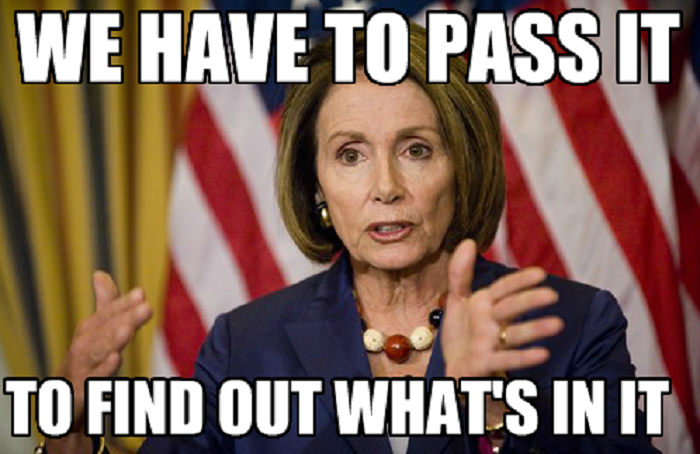
When it comes to cases involving the Taxing power of the Constitution, NFIB v. Sebelius (2012) sets precedent by passing a new tax, which hasn’t been done since the New Deal.
The facts of this case are interesting. The National Federation of Independent Business (Plaintiff), a collection of 26 states, challenged the Federal government (Defendant) over the constitutionality of the Patient Protection and Affordable Care Act (ACA aka Obamacare). Basically, the Supreme Court ruled the act’s mandate unconstitutional, but the rest of the act survived. These are the simple facts of NFIB vs. Sebelius.
NFIB vs Sebelius addressed the following constitutional question: Does the mandate violate the constitution where individuals must buy health insurance? This was the issue before the Supreme Court.
In a host of opinions, the decision was 5 to 4 for this case. The majority included: John Roberts, Ruth Ginsburg, Sonia Sotomeyer, Elena Kegan, and Steven Breyer. The dissent included: Antonin Scalia, Anthony Kennedy, Clarence Thomas, and Samuel Alito.
Here’s the holding in a nutshell. Obamacare survives as a tax under the taxing power of Article 1 section 8 of the constitution. Under the commerce power, Obamacare doesn’t survive. Finally, the Medicaid expansion is declared unconstitutional. Essentially, Obamacare survives as a new tax.
First, day one of Obamacare arguments was interesting because of the Chief Justice John Roberts saving construction. The saving construction dealt with the Tax Anti-Injunction Act and the penalty issue. In regards to Obamacare, the tax was a penalty for the purpose of the Tax Anti-Injunction act, and it was a tax for the purpose of the Constitution. Though the most important argument was made on this day, the Chief Justice John Roberts had to make twists and turns to save Obamacare.

Second, day two of oral arguments was uninteresting for Obamacare. It involved the Solicitor General Donald Verrilli choking over a glass of water. Indeed, Obamacare couldn’t even be upheld by Obama on this day.
Third, day three involved the question of severability. If the mandate is unconstitutional, what about the rest of the law? It seemed the Supreme Court had to hire their own lawyer to answer this question.
Finally, day 4 dealt with the Medicaid expansion question. Do states have to expand their own Medicaid programs or lose all federal money? This was a gun to head metaphor. Also, talk about Arizona’s controversial letter regarding section 4025 of appendix was addressed. Essentially, the Supreme Court said states don’t have to expand their Medicaid programs and lose all federal funding.
The Supreme Court’s opinions in Obamacare read like seriatim. In part 3a, 3b, and 3d, of the decision, Chief Justice John Roberts said the mandate is unconstitutional under Commerce Clause. In part 4, the Chief Justice said the Medicaid expansion was unconstitutional, which garnered seven votes from the Supreme Court. Indeed, the decision was difficult to digest and understand.
In the end, NFIB v. Sebelius was a new tax. The case made people wonder about the slippery slope question: How far could the government go? Could they make you buy broccoli? What about a gym membership or even a GM vehicle? That being said, in light of president Donald Trump being elected, new efforts to repeal the tax are underway.
